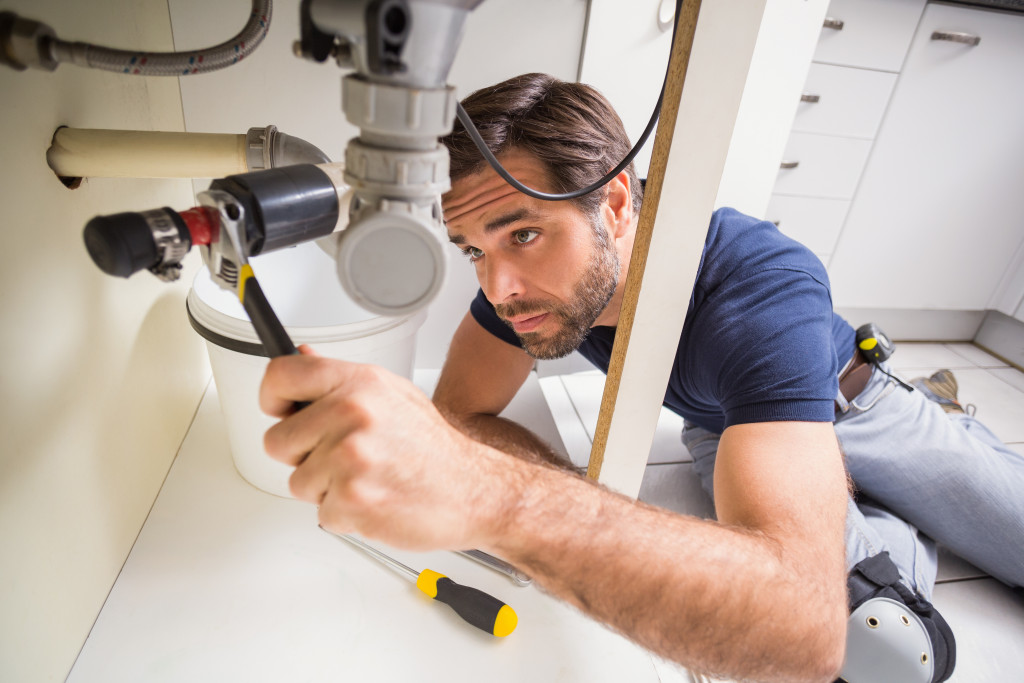- Acquiring the proper education, apprenticeships, and certifications are fundamental steps in becoming a professional plumber.
- Constant practicing and staying updated with industry advancements help maintain competitiveness in the plumbing field.
- Effective marketing strategies, including website development and networking, are crucial for establishing a successful plumbing business.
- Excellent customer service techniques, like timely response to complaints and respectful interactions, significantly boost business reputation.
The profitability of becoming a professional plumber can be highly rewarding in the long run. The median pay for plumbers, pipefitters, and steamfitters was $60,090 per year or $28.89 per hour. The top 10% of earners in these occupations earned more than $97,170. These statistics illustrate the potential financial benefits of pursuing a plumbing career. However, it’s crucial to remember that succeeding in this field requires dedication, up-to-date skills, and continuous learning.
However, deciding the proper steps to become a professional plumber can be challenging. Several factors are to consider, such as education, apprenticeship, and certification requirements. This document guides what steps to take toward becoming a successful professional plumber.
Learning the Professional Skills

Becoming a professional plumber requires more than just knowledge about pipes and fittings. It necessitates a comprehensive understanding of plumbing systems, including installation, maintenance, and troubleshooting. Plumbers must be skilled at reading blueprints, understanding building codes, and ensuring safety standards. These skills are critical in delivering high-quality, reliable plumbing services that uphold the reputation and integrity of the profession.
Acquiring an Education
Ideally, becoming a professional plumber begins with a high school diploma or equivalent, focusing on courses like math, science, and vocational education. Post-secondary educational programs, such as those offered by trade schools or community colleges, can provide foundational knowledge in plumbing principles, codes, and safety. These plumbing business training programs generally take about one to two years to complete and help aspiring plumbers understand the technical aspects of the job.
Apprenticeships
Apprenticeships offer a valuable opportunity to learn plumbing skills while earning a wage. They typically last four to five years and involve both classroom instruction and hands-on training under the supervision of experienced plumbers. Various organizations, such as trade unions and contracting companies, offer apprenticeships and provide real-world experience crucial for developing professional competence.
Obtaining Certifications
After completing an apprenticeship, aspiring plumbers can pursue certification to demonstrate their skill proficiency. In most states, certification involves passing an exam that tests knowledge of plumbing codes and practices. Certifications validate a plumber’s skills and enhance their credibility, potentially leading to more job opportunities and higher pay.
Practical Sessions
Of course, your first few attempts will likely not be perfect, but don’t let that discourage you. Practice makes perfect and continuous learning is essential for staying ahead in the plumbing industry. Attend workshops, seminars, and conferences to learn about new technologies and techniques in the field.
Marketing Your Services

As a professional plumber, marketing your services effectively is essential to establishing and growing your business. Attracting new clients or maintaining relationships with existing ones can be challenging without a strategic marketing plan. Leveraging various marketing tactics can help increase visibility, build credibility, and enhance your brand’s reputation in a competitive market.
Developing a Website
A professional website can significantly enhance credibility in today’s digital era. It is an online portfolio showcasing your services, customer testimonials, and completed projects. Ensure your website is easy to navigate, mobile-friendly, and optimized for search engines.
Social Media Presence
Social media platforms like Facebook, Instagram, or LinkedIn can be powerful tools for reaching a wider audience. Regularly posting updates about your services, sharing helpful tips, and engaging with your followers can help cultivate a strong online presence.
Networking
Networking can be an invaluable marketing strategy. Attend local community events, join relevant trade associations, and establish connections with other professionals in your field. Networking can lead to referrals, often a new business source.
Customer Service Techniques
Understanding and mastering customer service techniques is vital to being a successful professional plumber. Excellent customer service can set you apart from competitors and contribute to a positive reputation for your business.
When you interact with customers, you’re not just fixing a problem but also representing your brand. Customers are likelier to recommend you to others if they’ve had a positive experience. This involves clear communication, showing up on time for appointments, and respecting customers’ homes.
Additionally, handling complaints professionally and promptly, even when the fault is not yours, shows customers you value their business and satisfaction. In the long term, superior customer service can translate into repeat business, positive online reviews, and customer referrals, all essential for business growth.
Final Thoughts
Becoming a professional plumber is a journey that requires determination, hard work, and continuous learning. It’s crucial to acquire the necessary skills and education before starting your career and to maintain them through practical experience and certifications. In addition, developing effective marketing strategies and providing top-notch customer service can help you establish a successful plumbing business. With dedication and passion for the trade, you can build a reputation as a trustworthy and reliable professional plumber.

